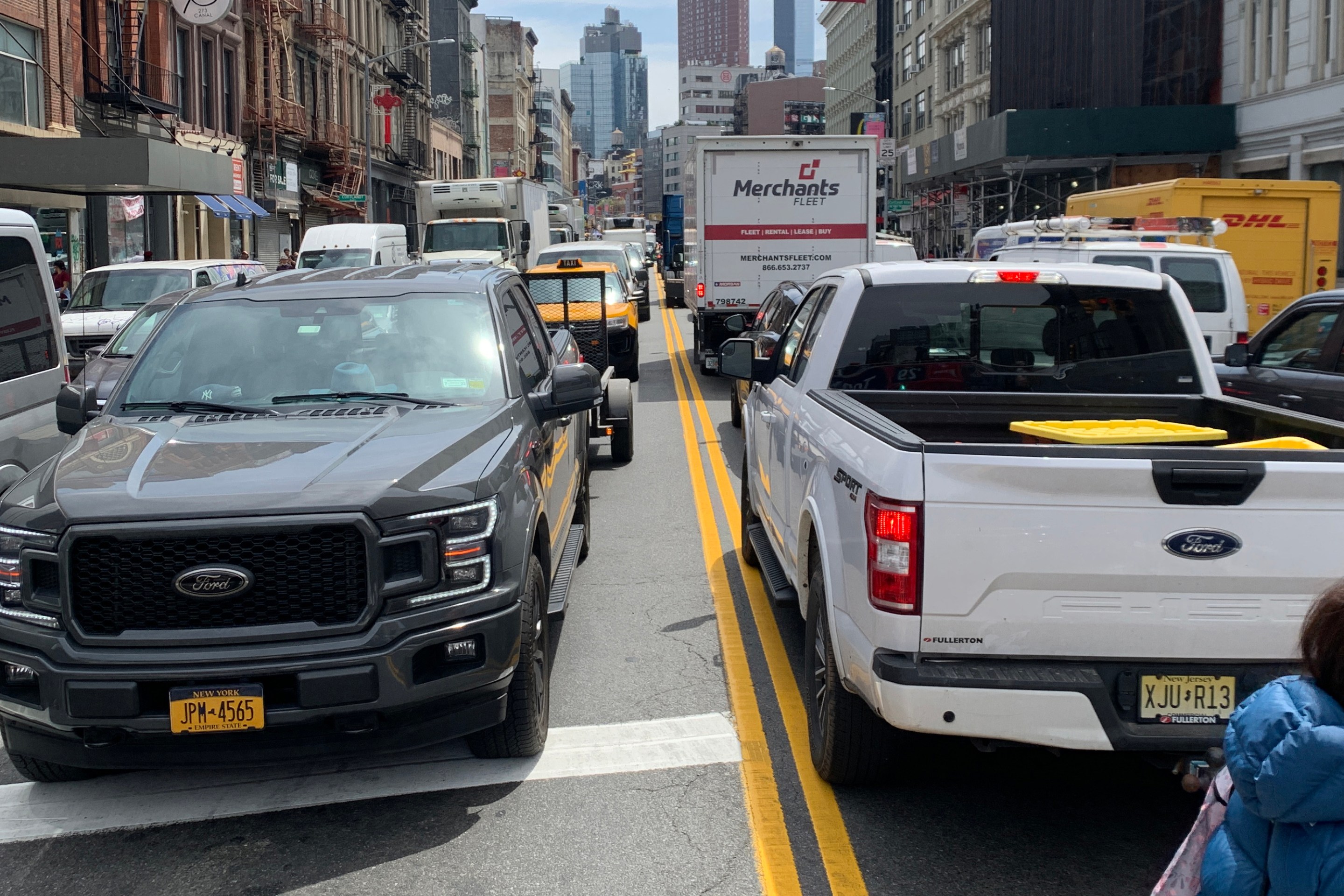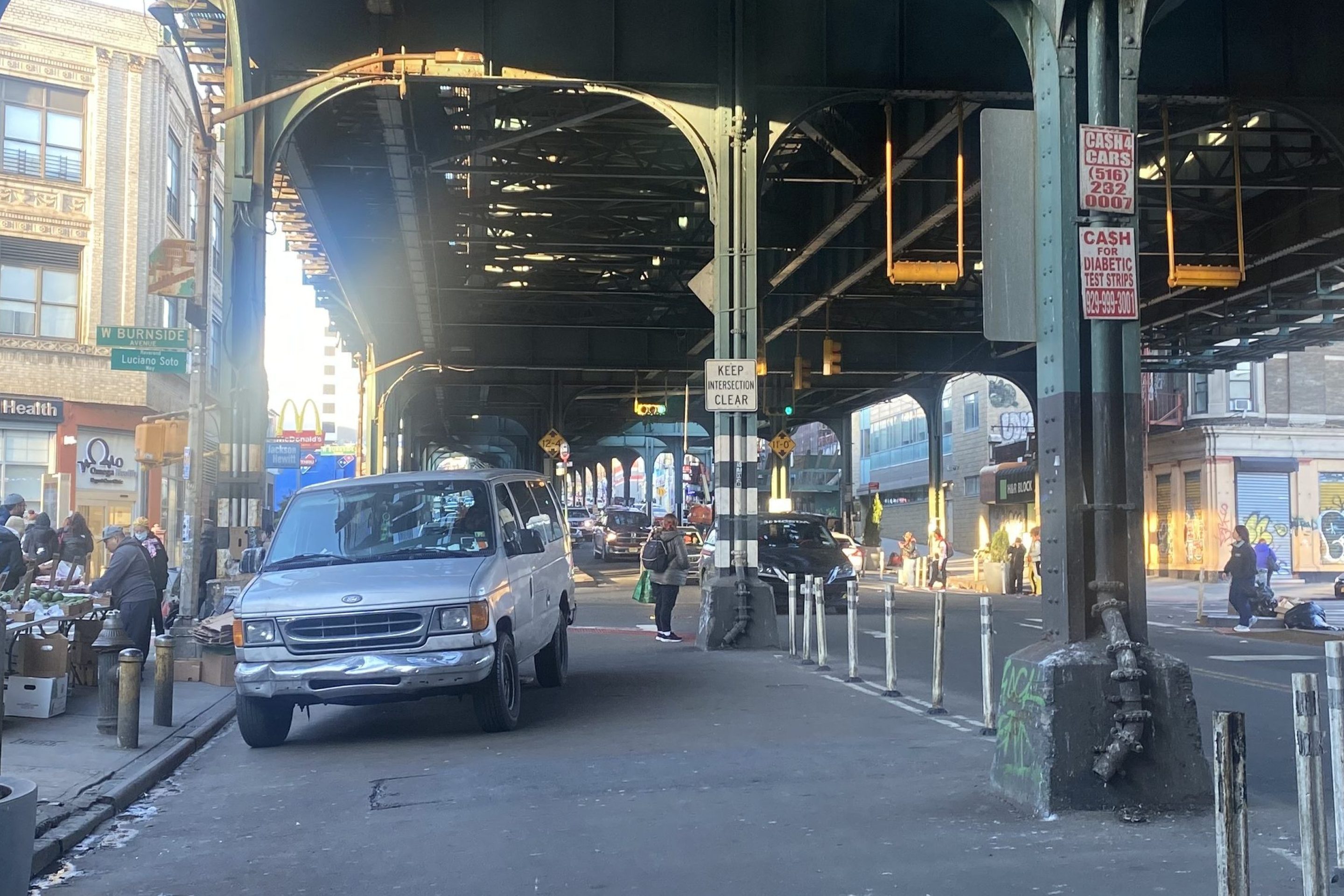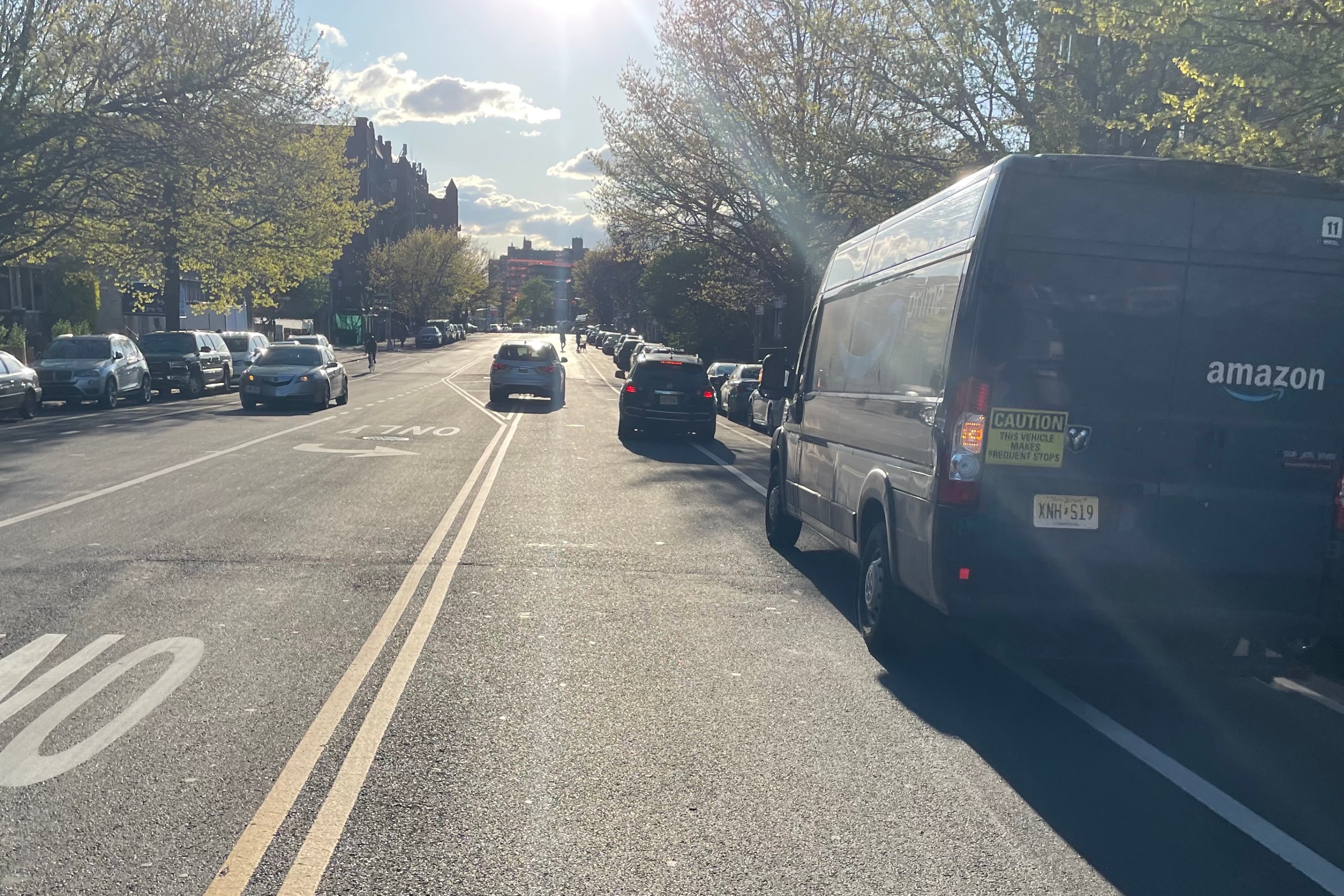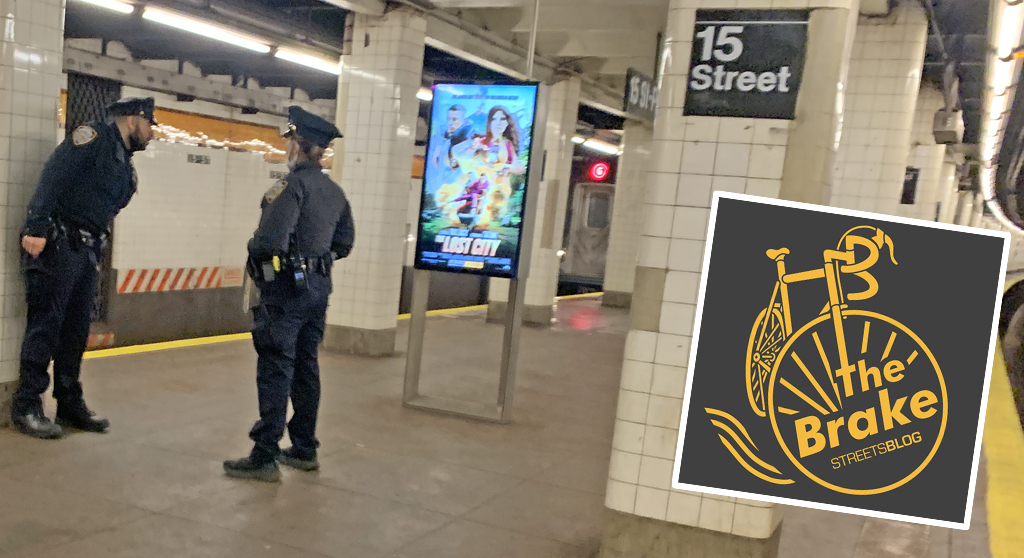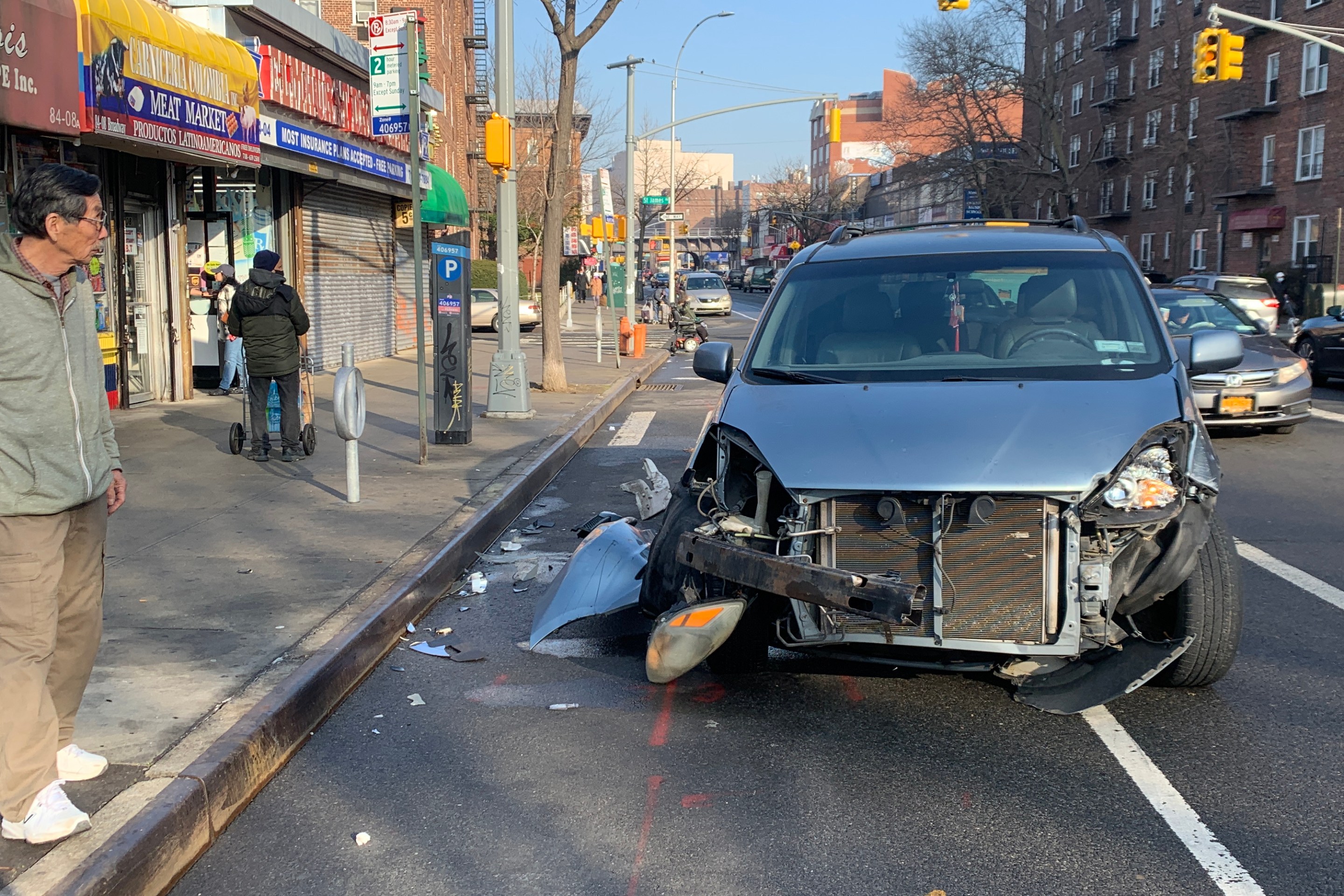In a region where passenger transportation is being reimagined, freight needs to catch up. That's the message Chris Ward, the executive director of the Port Authority, delivered in a "call to arms" at Baruch College this morning. After outlining the importance and challenges of moving freight, Ward put forward the beginning of a plan to rationalize cargo movement, calling for a combination of new infrastructure, new pricing schemes, and centralized distribution centers scattered across the New York region.
Ward's speech marked the release of the Port Authority's report "Freight and the Region's Future," a preliminary document that is part of a multi-year analysis of goods movement. But before Ward began to offer solutions, he impressed upon the crowd the urgency of the problem, which he called "likely the number one economic challenge facing this region."
Freight feeds the region, both economically and literally; one quarter of all trucks crossing the Hudson east are carrying food. But that lifeline is being choked by the region's own prosperity, argued Ward. In the next 25 years, he said, truck loads are expected to grow by 39 percent and vehicle hours of delay by 57 percent. In contrast, population and employment are expected to grow 15 and 19 percent, respectively. The region will need to shed that economic dead weight in order to continue to prosper, Ward argued.
What's more, freight movement uses some of the dirtiest vehicles on the road. Calling air pollution a "public health crisis," Ward wondered why "we tend to disassociate it from goods movement." Any discussion of emissions or sustainability needs to include freight.
Part of the solution is rail. That may include the cross-harbor freight tunnel, said Ward, but he highlighted a number of other suggestions. For example, Ward noted that the LIRR's stalled third track project could allow Long Island's rail system to accommodate both passengers and freight. He sees cross-harbor railcar floats as another way to link New Jersey and Brooklyn.
Unfortunately, argued Ward, rail can only do so much. Half of the trucks on the region's roads travel less than 78 miles, and a full 80 percent travel less than 222 miles. With rail currently cost-competitive only at 400 mile journeys, something needs to be done to improve our trucking system.
Ward's solution, which he called the "deconsolidation model," relies on creating distribution centers. Comparing the idea to the invention of ZIP codes by the Postal Service, Ward explained that all goods sent to a given geographic area would have to pass through a local distribution center. From there, a single distribution company, which would bid for the franchise, would deliver the goods to surrounding neighborhoods.
What this would allow, according to Ward, is better integration of long-haul transport modes with smaller, cleaner vehicles better suited for local distribution. "That supply chain last mile is where we're really experiencing the environmental degradation," said Ward. Whether electric trucks, as were just introduced at the Hunts Point distribution center, or even bikes in some cases, clean technology could be introduced to the freight transportation system.
To ensure that the distribution centers help clean up the region's streets, rather than simply centralize air pollution as happens at Hunts Point, Ward called for new transportation pricing. "I think pricing the fuels should be number one, number two, number three, number four," said Ward. "It's a national disgrace" that we don't tax fuel higher, he continued, "and not just in terms of what's happened in the Gulf." He also sees road pricing as a potential solution. "We're all going to have to pay for this in some way," he said.
For some livable streets advocates, Ward's most provocative comments may have been his remarks on passenger transportation. "The city is remaking itself along lines that squeeze out freight," he said, flashing images of bike lanes, greenways, and Amtrak's Acela train. Ward was careful to note that he doesn't oppose those particular moves toward a more sustainable passenger transportation system. Rather, he said, as innovation speeds along in passenger transport, freight opportunities are being overlooked, and in some cases blocked. "I'm afraid the decisions we make today," Ward explained, "will preclude the system we know we need."

